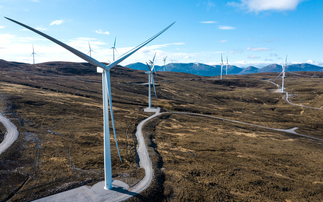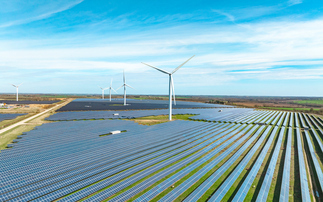Finance is key to any deal in Paris, argues PwC's Jon Williams, but how can public and private bodies best mobilise the huge sums of capital that are needed?
If you ask anyone here at COP21 what their top five issues for a climate deal in Paris would be, you would be hard pushed to find anyone who does not include climate finance.
It is after all at the centre of negotiations, with many countries looking for more detail on how and when the much promised $100bn a year will flow and who will open the taps.
In truth much is already happening, with some estimates putting climate finance flows from developed country governments to developing countries at $50-60bn annually and some $1tr a year going into clean energy globally.
However, the scale of the challenge is daunting: a further $900bn is needed every year to 2030 for clean energy alone, and $6tr each year over the same period for infrastructure, with an expectation that this will be both low carbon and climate resilient; sustainable or low carbon development in the EU and China needs finance of $700bn annually and this only gets us half way to 2C.
These amounts are beyond the reach of governments, and the public sector will need to step in to finance as much as 80-90 per cent of the total.
So what role can public sector institutions such as the Green Climate Fund (GCF) play to unlock this private capital? This was much debated at a side event today, and whilst nobody had all the answers, what is clear is that the GCF is encouraging collaboration with the private sector and open to innovative ideas that can help them mobilise funding at scale.
First and foremost, investors and lenders repeatedly say that long term, transparent and credible regulation is the key requirement. So a deal here in Paris, translated into national policies, is a must. Financial regulators can also help accelerate flows to low carbon economic growth by promoting improving risk management and disclosure regimes that recognise climate change as a risk to financial stability - as the Bank of England has started to do.
Secondly - and this is where the GCF and its like come in - financial institutions do not need funding as liquidity is still plentiful. What they need is risk mitigation and risk sharing, grants for technical assistance, developing country expertise and government relationships that multilateral lenders have built up over many years.
So the role of multilaterals like the GCF may be more akin to an insurer and venture capitalist than a lender, taking risk that the private sector will not bear, making investments and grants to projects and programmes, and getting them to a point where the private sector will refinance them. As such, they should expect to receive a return commensurate with these risks and recycle this income into the next wave of investments. And have an asset book that looks more like BBB than the triple A rating that is normal for lower risk investments - something that they can do given the quality of their backers.
Finally, the balance sheets of the world's banks will also reach capacity without the role of properly functioning capital markets, in developing countries as well as developed ones, that can efficiency recycle savings into low carbon, resilient investments that mitigate and help adaptation to climate change. Kick started by the World Bank and other MDB's, the nascent green bonds market, likely to reach $70bn in 2015, is one example of how capital markets are embracing clean investment.
Finance sits at the centre of any climate change deal in Paris and the private sector will be absolutely pivotal in this given that the vast majority of funding will need to come from them. The real trick is to build durable, public-private climate finance partnerships, and for that a durable agreement is needed.
Jon Williams is a partner at PwC. You can follow him @jonwilliams_pwc or @pwcclimateready.
This article is part of BusinessGreen's Road to Paris hub, hosted in association with PwC.







